About us
The Centre for the Study of Social Change and the Material Environment (CESCAME) based at the Institute of Sociology of the Czech Academy of Sciences aims to foster the position of Czech Sociology in both international and local academic communication by:
- ground-breaking research which draws on opportunities offered by the Czech and wider Central and East European (CEE) context for the generation of sociological knowledge and theory on cities and innovations in everyday life;
- engaging in international research networks aimed at promoting CEE knowledge to the forefront of topical global debates;
- elevating the standing of sociological knowledge in Czech society by communicating the Centre’s findings to the general public via traditional and new media channels.
CESCAME was established thanks to the support of the Czech Academy of Sciences through the Fellowship for Prospective Researchers - Lumina quaeruntur in 2020 awarded to Slavomíra Ferenčuhová.
Our team
Slavomíra Ferenčuhová
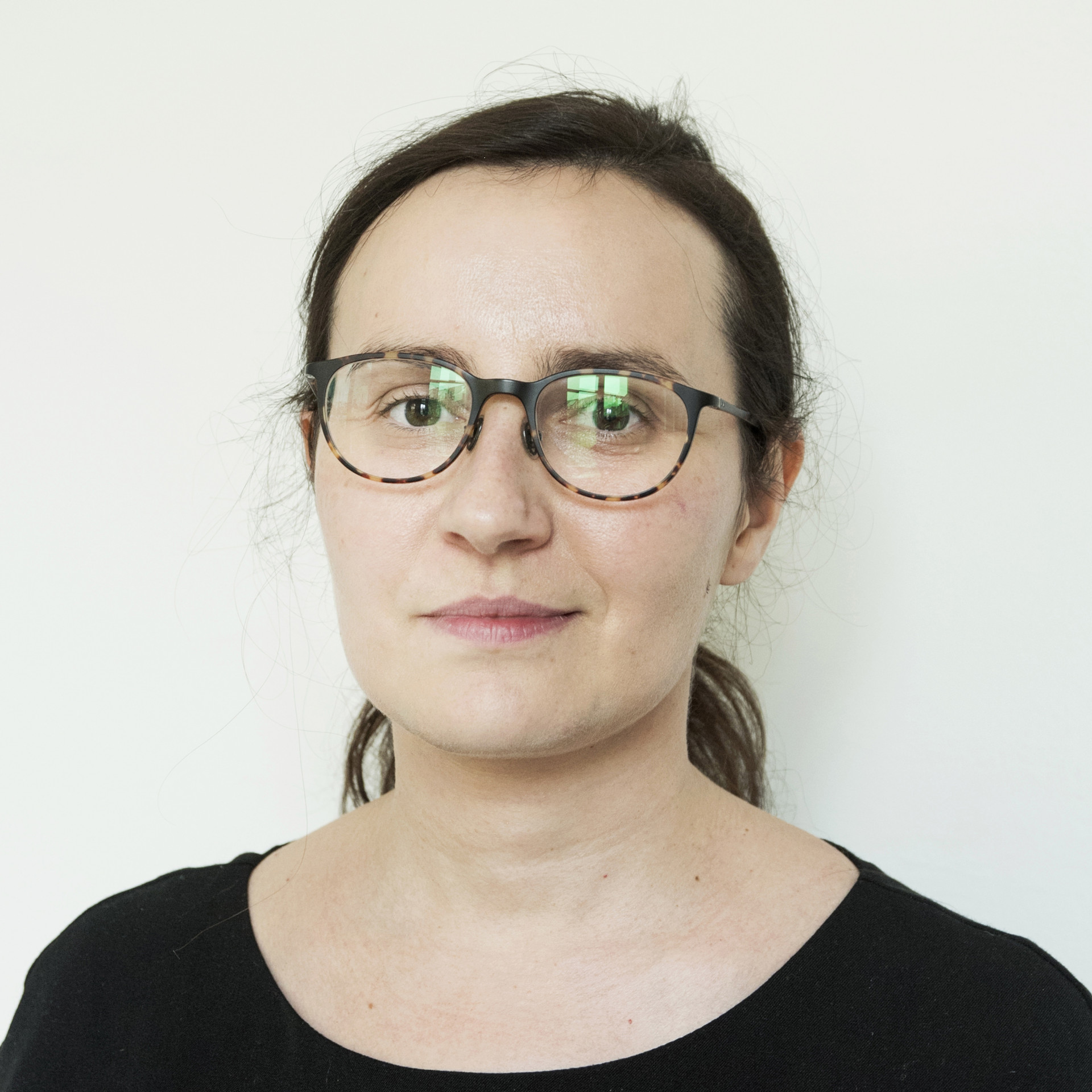
Slavomíra Ferenčuhová leads the CESCAME research project as the Lumina quaeruntur Award holder (awarded in 2020). She received her PhD in Sociology at the Masaryk University in Brno. She was a short-term visiting Fellow at the University of Manchester in 2012, and at Leibniz Institut für Länderkunde in Leipzig in 2015, and visiting Fellow at the Imre-Kertész Kolleg in Jena (2019/2020). Her research is placed at the intersection of the fields of Urban Sociology and Urban Geography. She focuses on studying the history of urban planning in former Czechoslovakia and the history of urban studies in Central Europe before and after the fall of the Iron Curtain, and on theorising the (post-)socialist city. Her research also covers everyday life in housing estates and urban responses to climate change.
In her research in CESCAME, Slavomíra studies the history of standardized prefabricated architecture made of timber and built in former Czechoslovakia in the early post-war period, as an example of a historical ‘inconspicuous innovation’ in housing. She also engages with (and in) international debates about comparative urbanism from the perspective of post-socialist Central Europe, or about environmentally sensitive everyday practices in Central and Eastern European cities and their relevance for social change. Finally, Slavomíra develops the concept of ‘inconspicuous innovations’ for the studies of urban everyday life.
Personal profile on the website of the Institute of Sociology
Publications
Ferenčuhová, S. (2024) Overcoming the Limitations of Comparative Urban Research in the (Post) Socialist Context. In: LeGalès, P. and J. Robinson (eds.) The Routledge Handbook of Comparative Global Urban Studies. London, New York: Routledge, Ch. 26, pp. 353-363. ISBN 9780367254667.
Ferenčuhová, S. (2024). "Multiple and Regionally Specific Organisational Forms of Urban Studies?" Dialogues in Urban Research, https://doi.org/10.1177/27541258231203998.
Bouzarovski, S., Bichsel, C., Boyer, D., Ferenčuhová, S., Gentile, M., Mykhnenko, V., Oguz, Z. & Tysiachniouk, M. (2023). Russia, Europe and the colonial present: the power of everyday geopolitics. Geographica Helvetica 78(3), 429-451. https://doi.org/10.5194/gh-78-429-2023.
Ferenčuhová, S., and P. Vašát. (2021). "Ethnographies of Urban Change: Introducing Homelessness and the Post-Socialist City". Urban Geography 42 (9): 1217–29, doi: doi.org/10.1080/02723638.2021.1930696.
Ferenčuhová S. (2022) “Inconspicuous adaptations to climate change in everyday life: Sustainable household responses to drought and heat in Czech cities,” Journal of Consumer Culture 22(3): 729–746. doi: 10.1177/14695405211013955.
Ferenčuhová, S. (2021) “Thinking relationally about socialist cities: cross–border connections in Czechoslovak post-war urban planning and housing construction,” Planning Perspectives 36(4), 667-687, DOI: doi.org/10.1080/02665433.2020.1844042
Ferenčuhová, S. (2020) “Not so global climate change? Representations of post-socialist cities in the academic writings on climate change and urban areas,” Eurasian Geography and Economics 61(6), 686-710. DOI: 10.1080/15387216.2020.1768134.
Ferenčuhová, S. (2016) “Accounts from Behind the Curtain: On History and Geography in the Critical Analysis of Urban Theory,” International Journal of Urban and Regional Research 40(1), 113-131. DOI 10.1111/1468-2427.12332.
Ferenčuhová, S. and Gentile, M. (2016) “Introduction: Post-socialist Cities and Urban Theory,” Eurasian Geography and Economics 57(4-5), 483-496. DOI: 10.1080/15387216.2016.1270615.
Hirt, S., Ferenčuhová, S., and T. Tuvikene (2016) “Conceptual Forum: The ‘Post-Socialist’ city,” Eurasian Geography and Economics 57(4-5), 497-520. DOI: 10.1080/15387216.2016.1271345.
Ferenčuhová, S. (2016) “Explicit definitions and implicit assumptions about post-socialist cities in academic writings,” Geography Compass 10(12): 514-524. DOI: 10.1111/gec3.12282.
Petr Jehlička
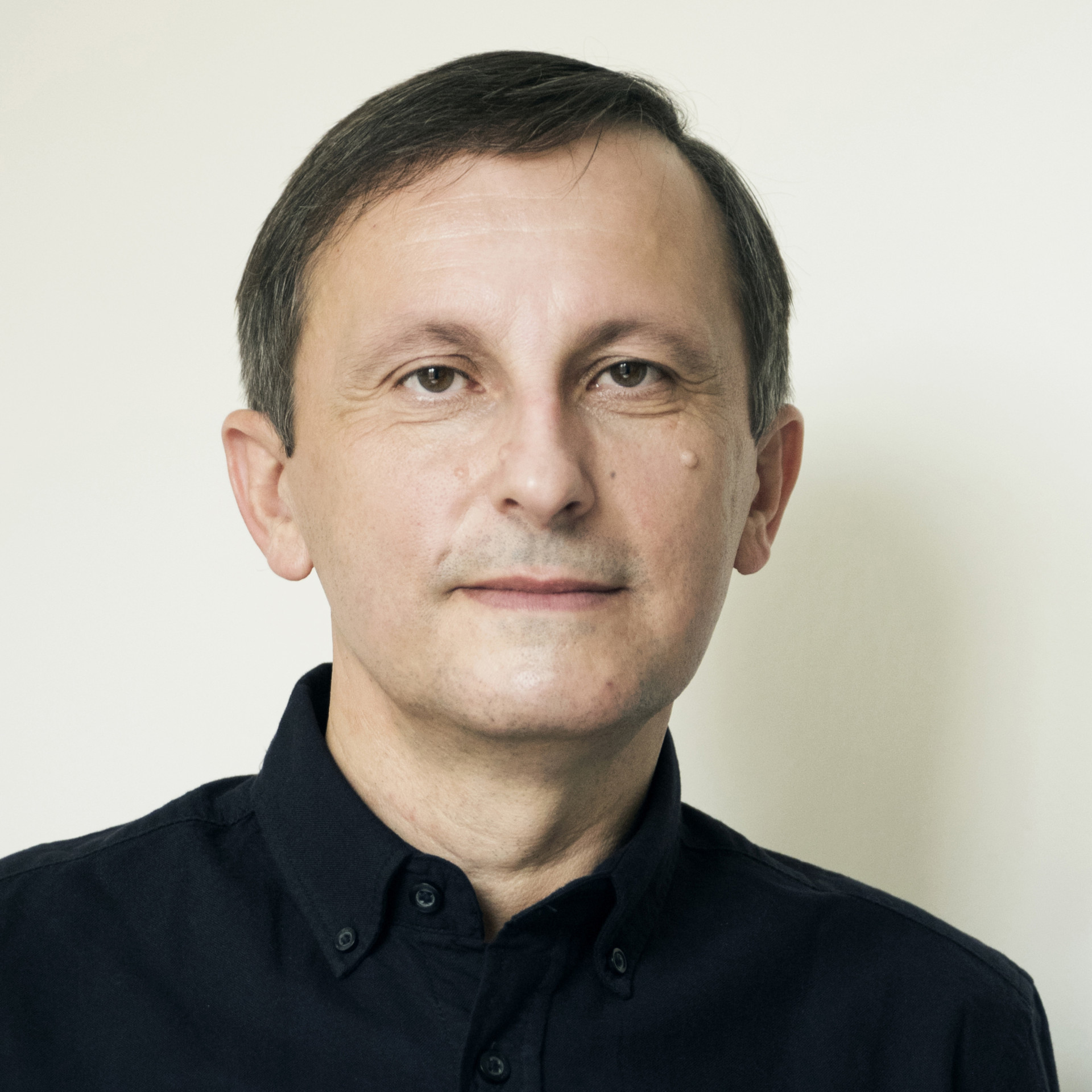
Petr Jehlička received his PhD in Social and Political Sciences at Cambridge University (1998). He was a postdoctoral researcher (Jean Monnet Fellowship) at the European University Institute in Florence (2000/2001) and visiting Fellow at the Ruralia Institute in Mikkeli in Finland (2019). At present, he is Senior Researcher at the Institute of Sociology and at the Institute of Ethnology of the Czech Academy of Sciences in Prague. His research revolves around everyday environmentalism and sustainable food consumption at the intersection of formal and informal food economies. More recently, he has explored these topics in relation to inequalities in the geography of knowledge production.
Personal profile on the website of the Institute of Sociology
Publications
Jehlička, P., Ma, H., Kostelecký, T., Smith, J. (2023) Chinese food self‑provisioning: key sustainability policy lessons hidden in plain sight, Agriculture and Human Values, online first, https://doi.org/10.1007/s10460-023-10506-7.
McGreevy, S. R., Rupprecht, C. D. D., Niles, D., Wiek, A., Carolan, M., Kallis, G., Kantamaturapoj, K., Mangnus, A., Jehlička P., Taherzadeh, O., Sahakian, M., Chabay, I., Colby, A., Vivero-Pol , J-L., Chaudhuri, R., Spiegelberg, M., Kobayashi, M., Balázs, B., Tsuchiya, K., Nicholls, C., Tanaka, K., Vervoort, J., Akitsu, M., Mallee , H., Ota, K., Shinkai, R., Khadse, A., Tamura, N., Abe, K., Altieri, M., Sato, Y., Tachikawa, M. (2022) Sustainable agrifood systems for a post-growth world, Nature Sustainability, Open Access https://doi.org/10.1038/s41893-022-00933-5.
Daněk, P., Sovová, L., Jehlička, P., Vávra, J. and Lapka, M. (2022) From coping strategy to hopeful everyday practice: Changing interpretations of food self‐provisioning, Sociologia Ruralis, 62(3): 651-671 https://doi.org/10.1111/soru.12395.
Visser, O., Kuns, B. and Jehlička, P. (2021) Beyond Confrontation: Silent growers, Symbiosis, and Subtle Peasantness in Post-Socialist Eurasia. In Akram-Lodhi, A. H., Dietz, K., Engels, B. and McKay, B. (eds.): Handbook of Critical Agrarian Studies. Edward Elgar, pp. 305-315.
Jehlička, P., Ančić, B., Daněk, P. and Domazet, M. (2021) Beyond hardship and joy: framing home gardening on insights from the European semi-periphery, Geoforum, 126: 150-158, Open Access https://doi.org/10.1016/j.geoforum.2021.05.018.
Sovová, L., Jehlička, P. a Daněk, P. (2021) Growing the Beautiful Anthropocene: Ethics of Care in East European Gardens, Sustainability, 13(9): 5193. Open Access: https://doi.org/10.3390/su13095193
Jehlička, P. a Jacobsson, K. (2021) The importance of recognizing difference: Rethinking Central and East European environmentalism. Political Geography, 87. Open Access: https://www.sciencedirect.com/science/article/pii/S0962629821000391.
Jehlička, P. (2021) Eastern Europe and the geography of knowledge production: The case of the invisible gardener, Progress in Human Geography, 45(5): 1218-1236, https://doi.org/10.1177/0309132520987305.
Jehlička, P., Grīviņš, M., Visser, O. a Balázs, B. (2020) Thinking food like an East European: A critical reflection on the framing of food systems, Journal of Rural Studies, 76: 286-295. https://doi.org/10.1016/j.jrurstud.2020.04.015.
Visser, O., Dorondel, S., Jehlička, P. a Spoor, M. (2019) Post-socialist smallholders: silence, resistance and alternatives. Canadian Journal for Development Studies / Revue canadienne d'études du développement, 40(4): 499-510. https://doi.org/10.1080/02255189.2019.1688649.
Jehlička, P., Daněk, P. a Vávra, J. (2019) Rethinking resilience: Home gardening, food sharing and everyday resistance. Canadian Journal for Development Studies / Revue canadienne d'études du développement, 40(4): 511-527. https://doi.org/10.1080/02255189.2018.1498325.
Fendrychová, L. a Jehlička, P. (2018) Revealing the hidden geography of alternative food networks: The travelling concept of farmers’ markets. Geoforum, 85: 1-10. https://doi.org/10.1016/j.geoforum.2018.06.012.
De Hoop, E. a Jehlička, P (2017) Reluctant pioneers in the European periphery? Environmental activism, food consumption and ‘growing your own’. Local Environment: The International Journal of Justice and Sustainability, 22(7): 809-824, https://doi.org/10.1080/13549839.2017.1289160.
Jehlička, P. a Daněk, P. (2017) Rendering the actually existing sharing economy visible: home grown food and the pleasure of sharing. Sociologia Ruralis, 57(3): 274-296. http://dx.doi.org/10.1111/soru.12160.
Terezie Lokšová
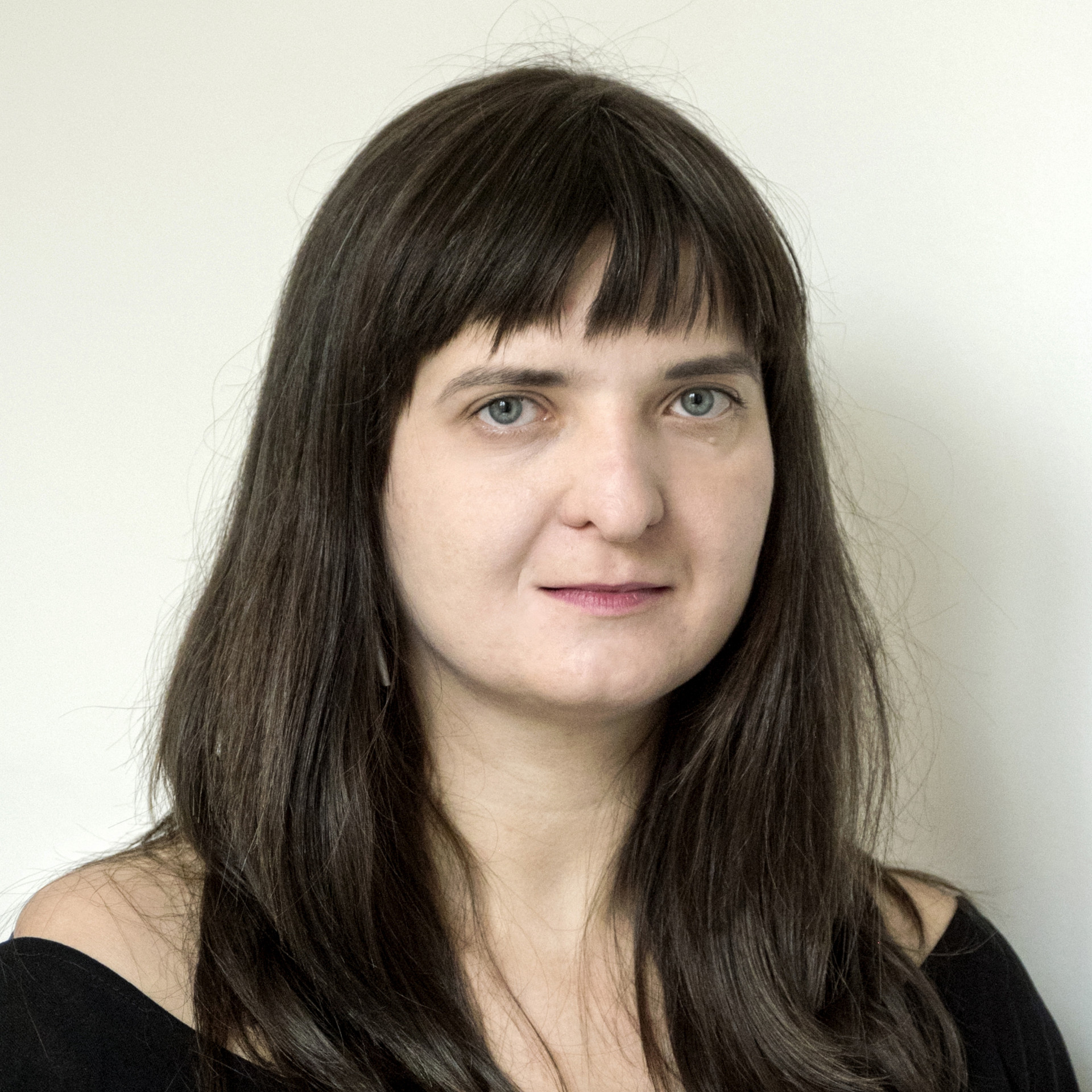
Terezie Lokšová is an Urban Sociologist. She completed her dissertation on how invited participation interferes with urban governance and architectural methods of working in 2023 at the Department of Sociology, Faculty of Social Studies, Masaryk University, Brno. In CESCAME, she explores the interplay between formal and informal innovations. She was a short-term visiting Fellow at the University of Latvia (2018) and at the School of Design of the Hong Kong Polytechnic University (2018). More generally, she focuses on the intersections of politics, expertise and the material environment in urban contexts.
Personal profile on the website of the Institute of Sociology
Publications
Lokšová, Terezie, a Tomáš Hoření Samec (Ed.). (2023). Za krizí bydlení: Koncepty, kontexty, konverzace a kritika. Sociologický Časopis / Czech Sociological Review, 60(2). https://sreview.soc.cas.cz/magno/csr/2023/mn2.php.
Lokšová, T., and Galčanová Batista, L., (2021) “Postsocialist suburban governmentality: A shift from reactive to proactive discourse in the case of Brno, Czech Republic.” Cities 110, 103074. DOI: https://doi.org/10.1016/j.cities.2020.103074.
Tomáš Hoření Samec
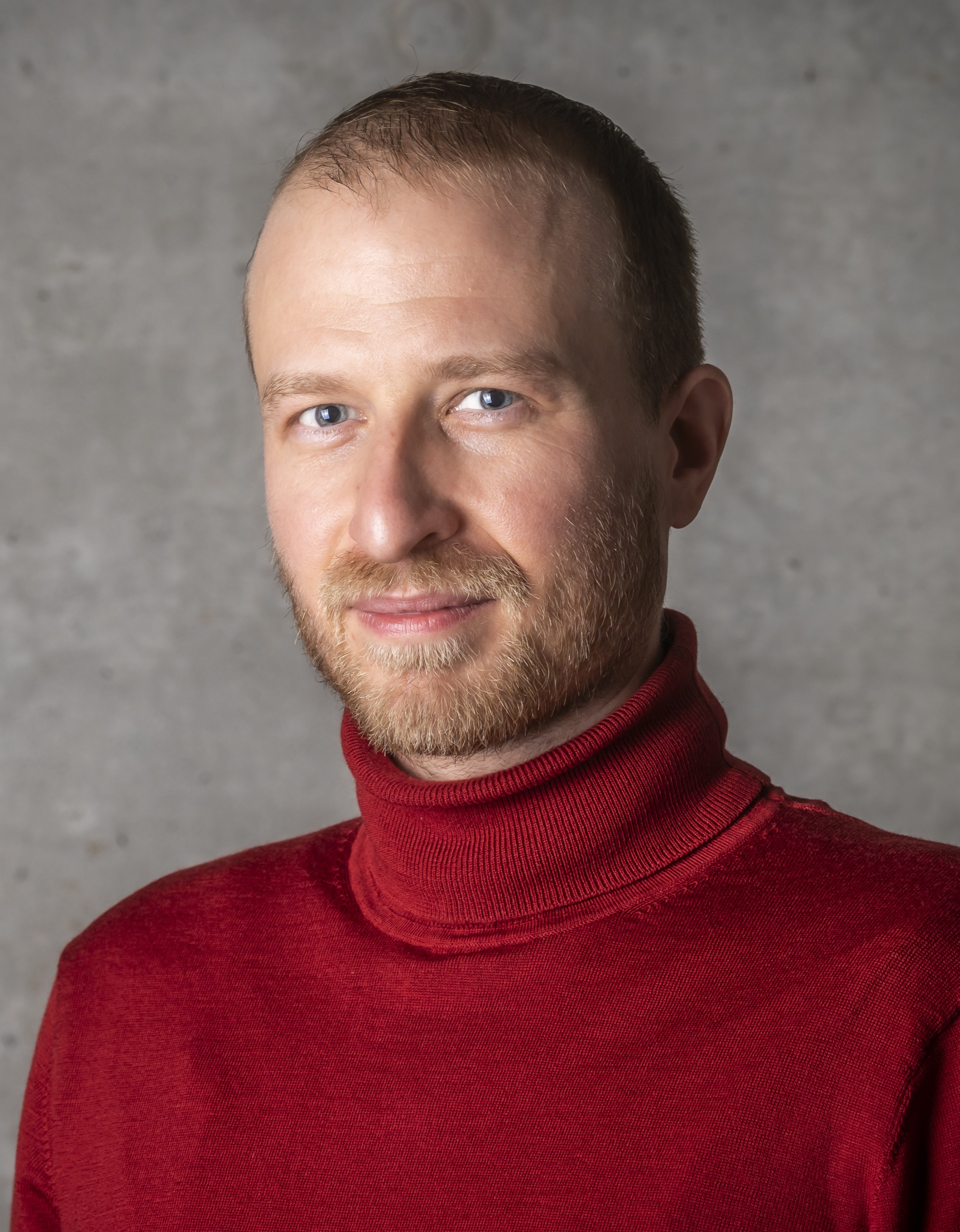
Tomáš Hoření Samec earned his PhD in Sociology from the Faculty of Social Sciences at Charles University (2018). He has completed research stays at Universität Wien (2018) and the University of Arizona (2024–2025) as part of a Fulbright-Masaryk scholarship. His research focuses on the relationship between housing, power, and social hierarchies — for example, how certain social norms and practices related to housing (re)produce specific social and political structures. He is currently exploring the possibilities and limitations of developing new participatory forms of housing in the Czech Republic. His work has been published in several prestigious academic journals, including Urban Studies, Journal of Cultural Economy, Housing Studies, New Political Economy, and Housing, Theory and Society. In 2023, he co-edited a special issue of the Czech Sociological Review titled Beyond the Housing Crisis: Concepts, Contexts, Conversations, and Critique, together with Terezie Lokšová.
Publications
Decker, A., & Hoření Samec, T. (2025). ‘I’m not going to feed the bailiffs’: personal bankruptcy and debtor agency in narrative accounts of struggling debtors. Journal of Cultural Economy, 18 (1): 18-34.
Hoření Samec, T., Decker, A., & Trlifajová, L. (2024). Consumption loans consuming homes: intersections of housing precarity and personal overindebtedness. International Journal of Housing Policy, 24 (3), 501-520.
Hoření Samec, T., & Kubala, P. (2024). Dual responsibilization for housing in a housing crisis: young adults in the Czech Republic. Housing Studies, 39(4): 857-876.
Trlifajová, L., Decker, A., & Hoření Samec, T. (2024). Financialisation and contested citizenship of ‘failed’ debtors: how overindebted people negotiate their status and rights. Citizenship Studies, 28 (2), 243-261.
Hoření Samec, T. & Trlifajová, L, (2023). Protect or punish debtors? Policymaker discourse on the state's role in personal debt governance. New Political Economy. 28(6), 958-970.
Malý Blažek, J., Hoření Samec, T., Kubala, P. & Orcígr, V. (2023). Participativní bydlení: nová konceptualizace demokratických forem bydlení v České republice. Sociologický časopis/Czech Sociological Review, 59(2), 173-195.
Kubala P. & Hoření Samec, T. (2021). The pace of “the good life”: Connecting past, present, and future in the context of a housing affordability crisis. Time and Society. 30(2): 198-222.
Samec, T., & Gibas, P. (2021). Urban Political Ecology of Worth and Value: Enacting Allotments in Media Discourse. Space and Culture. 24(1): 170-183.
Samec, T. (2020). Normalization of Mortgages in Media Discourse through Affects and Instructions. Housing, Theory and Society. 37(2): 180–197.
Samec, T. (2018). Performing Housing Debt Attachments: Forming Semi-Financialised Subjects. Journal of Cultural Economy. 11(6): 549-564.
Lux, M., Samec, T., Bartos, V., Sunega, P., Palguta, J., Boumová, I., & Kážmér, L. (2018). Who actually decides? Parental influence on the housing tenure choice of their children. Urban Studies 55(2): 406–426.
Hájek, M. & Samec T. (2017). Discourses of thrift and saving in a state-socialist society and their legacy for responsible present-day consumption. Sociologický časopis / Czech Sociological Review 53(6): 805–831.
Veronika Kotýnková Krotká

Veronika Kotýnková Krotká has recently received her PhD in Social Geography and Regional Development at Masaryk University in Brno, with a dissertation exploring how normative temporal expectations are navigated in everyday life, especially in the context of flexibility, work, and disability. She holds a master’s degree in Sociology from the Faculty of Social Studies of Masaryk University. Her research began with a focus on time politics in the context of migration. Currently, she is interested in the role of time and spatiotemporal policies in relation to labor conditions and the accessibility of public transport for people with disabilities.
In CESCAME, she works as a research assistant. She is involved in organizing workshops and conferences, assists with the operation of the project, and also participates in the center's research activities.
Publications
Osman, R., Kotýnková Krotká, V. (2025). ‘You find out what’s important’: the crip spacetime of wheelchair users. Disability & Society, 1–21. https://doi.org/10.1080/09687599.2025.2458017
Kotýnková Krotká, V. (2024). Flexible work: Does it really mean more autonomy? Time poverty in flexible time-space working arrangements. Time & Society, 34(2), 155-177. https://doi.org/10.1177/0961463X241261319 (Original work published 2025)
Kotýnková Krotká, Veronika. (2023). ‘Not Knowing When It's Going to Happen and What's Going to Happen’: The Time Politics of Applying for a Residence Permit in the Czech Republic. Sociologický časopis. Sociologický ústav AV ČR, v. v. i., (59): 3, 293-314. ISSN 0038-0288. https://dx.doi.org/10.13060/csr.2023.036.
Osman, Robert, Hana Porkertová a Veronika Kotýnková. Geografie bariér. In Osman, Robert. Geografie bariér: příklady dobrých bezbariérových realizací. 1. vyd. Brno: Masarykova univerzita, (2021), s. 23-47. ISBN 978-80-210-9909-8. https://dx.doi.org/10.5817/CZ.MUNI.M210-9910-2021-1.
Past members
Petr Vašát

Petr Vašát is an anthropologist and urban researcher. He received his PhD in Ethnology from the University of West Bohemia in 2013. He has held visiting positions at Columbia University (2017/2018, Fulbright-Masaryk Fellowship), Universidad del Rosario (2019, UR Research Fellowship), Central European University (2020/2021, Junior Core Fellowship), and Harvard University (2021-2023, Marie Skłodowska-Curie Global Fellowship). Between 2021 and 2024, he worked as a Marie Skłodowska-Curie Global Research Fellow at the Georg-Simmel Center for Metropolitan Studies, Humboldt-Universität zu Berlin, as part of the SURBANIN project. Currently, he serves as a Senior Researcher at the Institute of Sociology of the Czech Academy of Sciences in Prague. Using a variety of methods and tools, such as ethnography, social network analysis, photovoice, and GPS tracking, his research focuses on the comparative study of poverty and inequality, informality and urban environments, and various dimensions of street culture. Most recently, he has been investigating why and how social innovations in architecture, art, and design are used by collectives to assist marginalized individuals and communities in the Global South and North by upgrading their material environments.
Personal profile on the website of the Institute of Sociology
Publications
Fernández, Alejandra, Petr Vašát. 2024. The ecology of surface: Within and beyond communities in transformation through macro-paintings. lo Squaderno 67: 21–25, http://www.losquaderno.net/?cat=205.
Vašát, Petr. 2023. From squat to cottage: Materiality, informal ownership, and the politics of unspotted homes. Housing Studies 38 (9): 1642-1661, https://doi.org/10.1080/02673037.2021.1966393.
Vašát, Petr, Jan Váně. 2023. Governed by atmospheres: Affect, materiality and everyday benevolence in homeless encampments during the COVID-19 pandemic. Urban Studies 60 (12): 2384–2399, https://doi.org/10.1177/00420980221149313.
Vašát, Petr. 2023. Quasi-household economy: Rethinking homelessness in post-socialist Pilsen and beyond. Cities 134, https://doi.org/10.1016/j.cities.2023.104190.
Ferenčuhová, Slavomíra, Vašát, Petr. 2021. Ethnographies of urban change: Introducing homelessness and the post-socialist city. Urban Geography 42 (9): 1217-1229. https://doi.org/10.1080/02723638.2021.1930696
Vašát, Petr. 2021. Making city-bases: Homeless places, poverty management, and urban change in Pilsen, Czechia. Urban Geography 42 (9): 1252-1269. https://doi.org/10.1080/02723638.2020.1826752.
Šimon, Martin, Petr Vašát, Hana Daňková, Petr Gibas & Markéta Poláková. 2020. Spatially explicit mobility of homeless people: Exploratory analysis of GPS tracking data. GeoJournal 85 (5): 1411–1427, https://doi.org/10.1007/s10708-019-10030-4.
Šimon, Martin, Petr Vašát, Hana Daňková, Petr Gibas & Markéta Poláková. 2019. Activity spaces of homeless men and women measured by GPS tracking data: A comparative analysis of Prague and Pilsen. Cities 86 (3): 145–153, https://doi.org/10.1016/j.cities.2018.09.011.
Bernard, Josef, Hana Daňková & Petr Vašát. 2018. Ties, sites and irregularities: Pitfalls and benefits in using respondent-driven sampling for surveying a homeless population. International Journal of Social Research Methodology 21 (5): 603–618, https://doi.org/10.1080/13645579.2018.1454640.
Anja Decker
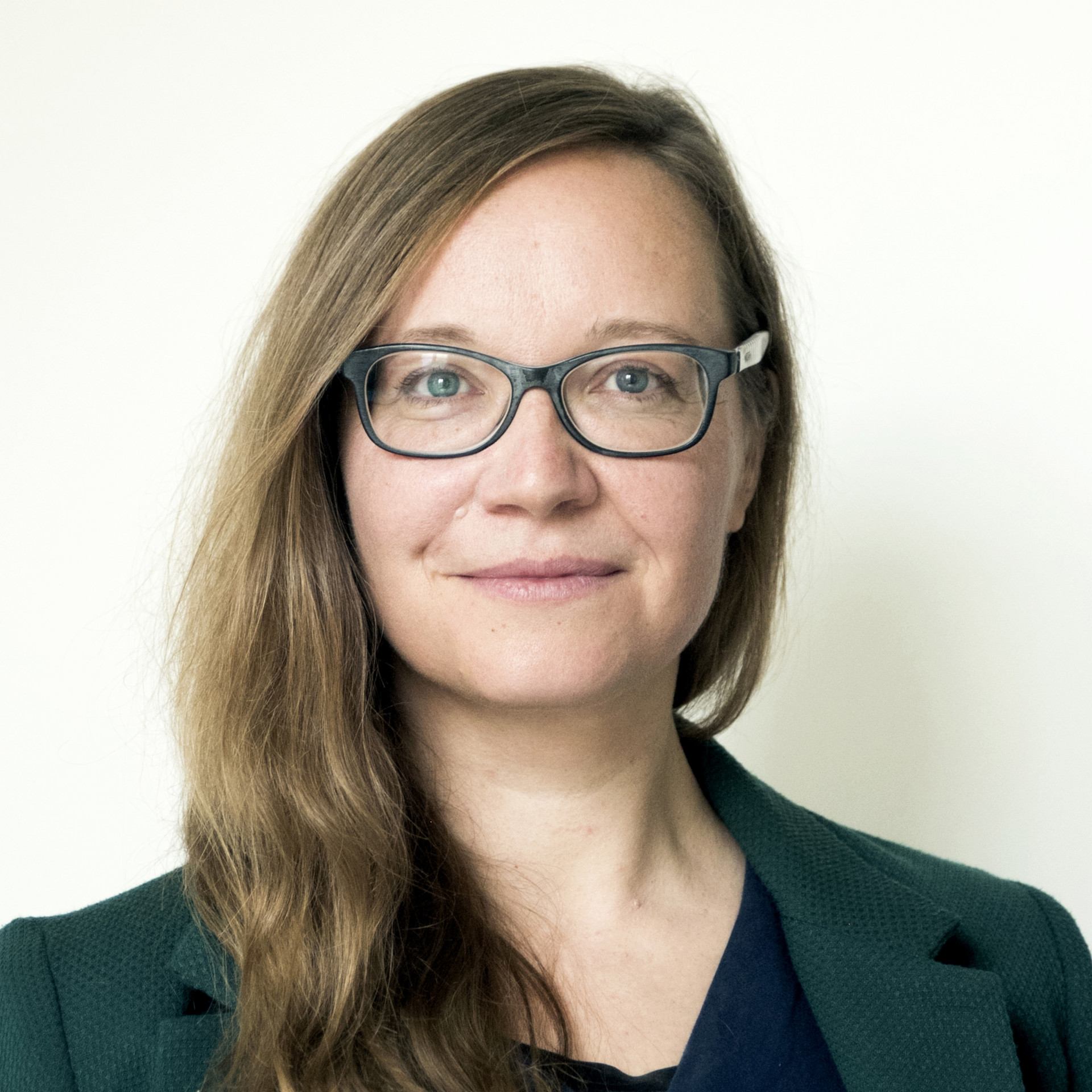
Anja Decker is a Cultural Anthropologist trained at Humboldt-University Berlin and Ludwig-Maximilians-Universitat Munich. She has been a visiting fellow at Charles University (2019) and University of West Bohemia (2020). Her research interest lies in the conjunction of social and spatial inequalities, which she approaches with a focus on diverse economies and everyday agency. In her PhD thesis, she is currently writing up, she explores the lived experience of precarity and agency in rural peripheries through the ethnography of alternative food economies in a case region of the Czech Republic. As part of CESCAME she investigates the informal practices of care for urban greenery in Czechia and Eastern Germany with a particular interest in the interrelations of everyday and transformative agency, the social organization of informality and the translocal embeddedness of these practices.
Personal profile on the website of the Institute of Sociology
Publications
Bischof, S, and Decker A. ‘Out of Balance? Understanding Resident-Municipality Relations in Rural Peripheries through Ascriptions of Responsibility’. Journal of Rural Studies 97 (January 2023): 281–89.
Decker, A. (2021) Kooperationen, Abgrenzungen, (Un)Sichtbarkeiten. Landevents als temporäre Akteur*innengeflechte moralisierter Märkte [Cooperations, distinctions, (in)visibilities. Countryside events as temporal assamblages within moralized markes]. In: Fenske, M., Peselmann A. and Best, D. (eds.) Ländliches vielfach! Leben und Wirtschaften in erweiterten sozialen Entitäten. Bielefeld: Transcript, 295-317.
Trummer M, and Decker A. (eds.) (2020) Das Ländliche als kulturelle Kategorie. Aktuelle kulturwissenschaftliche Perspektiven auf Stadt-Land-Beziehungen [The rural as a cultural category. Contemporary cultural-anthropological perspectives on urban-rural relationships]. Bielefeld:transcript. https://www.transcript-verlag.de/media/pdf/68/48/89/ts4990_1.pdf
Decker, A. (2020) Kollektive Entwurzelung, ‚kranke‘ Dörfer und eine neue ländliche Generation. Symbolische Distinktionspraxen von Lifestyle MigrantInnen im tschechischen Grenzland [On collective uprooting, ill villages and a new rural generation. Symbolic distinctions of lifestyle migrants in the rural Bohemian borderlands]. In: Gehl, K., Roth, K., and Spiritova, M.: Eigenbilder, Fremdbilder, Identitäten im östlichen Europa (Ethnografische Perspektiven auf das östliche Europa, Bd. 4). Bielefeld:transkript, 125-142.
Bernard J., Contzen S., Decker, A., and Shucksmith M. (2019) Poverty, social exclusion and marginalisation in diversified rural contexts. Sociologia Ruralis 59(3): 353-368. https://doi.org/10.1111/soru.12260
Decker, A. (2019) A Freezer full of Meat. Subsistence Farming in the Context of Social Inequality. Journal for European Ethnology and Cultural Analysis 3(2): 169-192. https://www.waxmann.com/artikelART102579
Decker, A. (2019) The ambiguous experience of motherhood in the Western Bohemian countryside: Exploring rural gender inequalities through the framework of precarity. Sociologia Ruralis 59(3): 517-539. https://doi.org/10.1111/soru.12257
Decker, A. (2019) Von Schätzen im Garten, hybriden Produkten und ländlichen Möglichkeitsräumen. Inwertsetzung, Ausdeutungen und Entgrenzungen ruraler Wirtschaftspraxen in einer tschechischen Obstbrennerei [On treasures in gardens, hybrid products and rural spaces of opportunity. Commodification, interpretation and blurring bounderies in a Czech fruit brandy distillery]. In: Braun, K., Dieterich, C-M., Moser, J. and Christian Schönholz (Hg.): Wirtschaften. Kultur-wissenschaftliche Perspektiven. Marburg: MaKuFEE: 653-660. https://archiv.ub.uni-marburg.de/es/2019/0032/pdf/makufee-s-01.pdf
Decker, A. (2017) Ein tschechischer Kleinstbauer zwischen Subsistenz- und Warenproduktion. Überlegungen zur Rolle der Kleinstlandwirtschaft im Kontext der Prekarisierung ländlicher Lebenswelten [A Czech small-scale farmer between subsistence and commodity production in the context of the precarisation of rural everyday-life] Berliner Blätter 74: 63-80. https://www.panama-verlag.de/shop/Produkt/strategien-etext/
Bernard, J., Decker, A., Mikešová, R., Vojtíšková, K. (2016) Living and Dealing with Limited Opportunities: Social Disadvantage and Coping Strategies in Rural Peripheries. Sociální studia/Social Studies, 13(2): 29-53. https://doi.org/10.5817/SOC2016-2-29